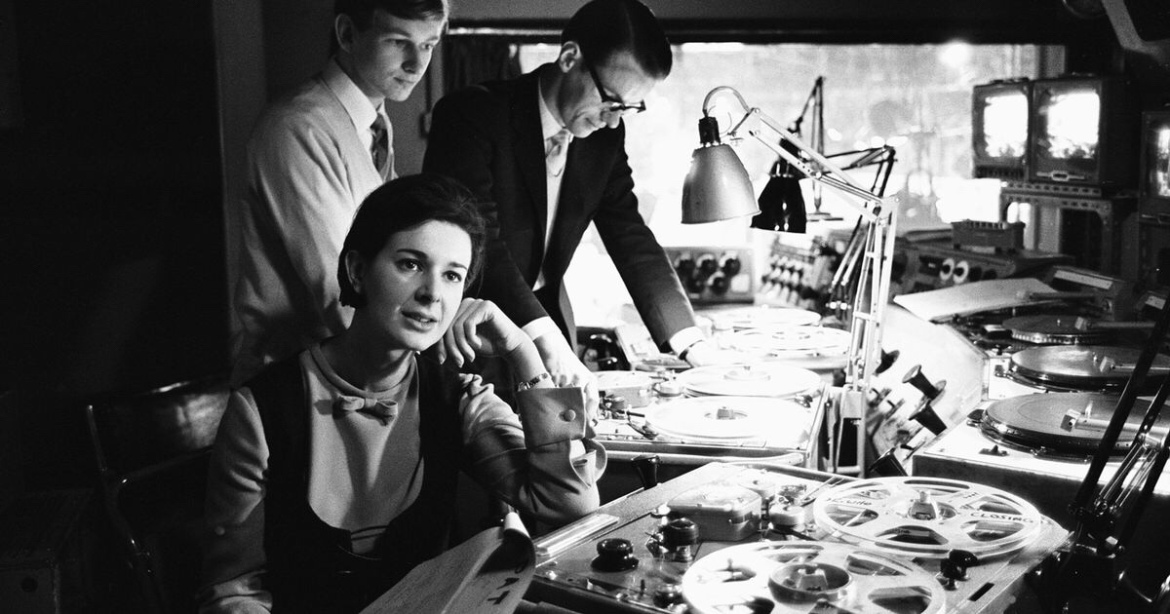 When Doctor Who premiered in 1963, no one could have guessed what a giant the show would become. Almost 54 years later, the science fiction series remains on the air, inspiring new generations of fans. At the helm of the ground-breaking show was a 28 year old producer, brand new to the BBC. However, as the producer and show-runner for Doctor Who, Verity Lambert changed the TV landscape for the next half century.
When Doctor Who premiered in 1963, no one could have guessed what a giant the show would become. Almost 54 years later, the science fiction series remains on the air, inspiring new generations of fans. At the helm of the ground-breaking show was a 28 year old producer, brand new to the BBC. However, as the producer and show-runner for Doctor Who, Verity Lambert changed the TV landscape for the next half century.
According to the Telegraph, Lambert started in television working as a secretary in Granada’s press office. She then moved on to serve as a production assistant for ABC television, before moving briefly to the United States. While there, she worked as a personal assistant to producer David Susskind.
However, during her time with ABC television Verity Lambert met Sydney Newman, a Canadian TV producer working in London. According to the Independent, the BBC hired Newman to join the network as Head of Drama in 1963. That same year, Newman asked the 27 year old Lambert to join the BBC in order to run a children’s show. It is widely reported that not only was she was the youngest producer, but also the only female producer in the BBC drama department at the time.
The Independent reports that Newman saw Doctor Who as an educational, children’s show:
(He saw) none of what he termed ‘cheap-jack, bug-eyed monsters’, but soon the adventures of the Time Lord (originally played by William Hartnell) began to take him to other planets…. Lambert and script editor David Whitaker, clashed with Newman as they developed the outer-space concept and introduced aliens creatures….
Doctor Who holds an interesting place in history. The drama first hit airways the day after President Kennedy’s 1963 assassination. The out-of-this-world escapism of the show quickly became a hit with audiences. Lambert ran Doctor Who for the first two series before leaving in 1965. By that time, the show began the evolution for which the series is forever associated. While Hartnell remained as the First Doctor, companions William Russell, Carole Ann Ford, and Jacqueline Hill had moved on, with new faces taking their place.
The show would continue on the BBC, running for 26 seasons before its eventual cancellation in 1989. By that time, seven actors played iconic the role of The Doctor, allowing the show to span to a new generation.
As her time with Doctor Who came to an end in 1965, Lambert stayed with the BBC. The Guardian quotes BBC fiction controller Jane Tranter, “During her long and brilliant career, there was no form of drama that was beyond her reach or that she didn’t excel at…”. Lambert’s credits in the years following Doctor Who include a number of different genres. Not only did the talented producer tackle soap-operas, but also period pieces, and even crime dramas.
Lambert left her post at the BBC in 1969. As television grew and evolved during the 1970s and 1980s, Lambert worked steadily. Her career peaked once again in 1985 when she founded a production company called Cinema Verity.
Lambert received the rank of OBE (Officer of the British Empire) in 2002.
Verity Lambert continued in television into the 2000’s. Most newspapers covering her death report she continued working on her final show, Love Soup until mere weeks before her 2007 death from cancer.
Since its 1963 debut, Doctor Who grew into an iconic giant of science fiction. A brand new drama producer with the BBC, Verity Lambert shaped many of the elements fans know and love. As Doctor Who begins a new series, many of the pieces Lambert created are still very much present.
More episodes of Doctor Who are slated to hit airways this year.
